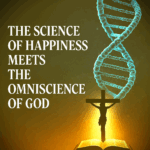“More Than All Those” – Mark 12:38-44
Introduction: Commitment Sunday
Today is what we know at Hope Lutheran Church as Commitment Sunday, or perhaps Stewardship Sunday. If you are a guest with us at worship – either here in the sanctuary or watching online – please don’t feel compelled to respond in the same way as we are inviting our Hope people to respond. If you have a home church, perhaps your church does something similar, or today’s thoughts might spark a desire within you to respond to God’s blessing with your time, and service, and treasure. If you don’t have a home church, I encourage you to find one where you can feel connected to God and also to God’s people, and I encourage you to offer those same things in that context out of thanksgiving to God. The purposes for doing this are to remind us all – at least this one time a year – that a faithful response to God’s grace for us in Jesus Christ is to be intentional about saying thanks with our devotional and prayer time, and with our loving service to God and others in and through the church (but not exclusively in that way), and with our generous and cheerful financial support of God’s Word and God’s Kingdom work.
1. The Widow’s Offering
Our Gospel reading from Mark 12 gives us a great connection to and springboard for that Stewardship theme, as we hear the story of the sacrificial offering of the poor widow in the Jerusalem temple, and Jesus’ remarks about it.
a. Things everybody knows
Now there are some things that everybody knows about this story, but I want to start with a couple of contextual things that you may NOT be aware of.
First, in 1st century Jerusalem, women were not even allowed into the temple proper. There was a courtyard where Gentile people could be. There was a courtyard where men could be. There was a courtyard where women could be. This little episode took place in the temple treasury where both men and women could go to offer their financial gifts, but women could go no farther.
Second, they didn’t handle the offerings like we used to do. We used to pass the offering plate past every person in the sanctuary, kind of expecting everyone to give something. These days we offer people the option to give by direct deposit – which is definitely intentional, but not public. Nobody sees you put an offering envelope in the plate. But lately, out of covid safety concerns, we are actually practicing something similar to Jesus’ day. People put their offerings into the plate as they enter the building. Then they are simply brought forward during the time of offering. I like that. It’s more Biblical than spending two or three minutes watching the offering plates pass from hand to hand. On that day, right near where Jesus was sitting, the woman, and everybody else, were putting their monetary offering into one of 13 trumpet-shaped receptacles or “offering boxes” – kind of like freeway toll baskets in the States.
Third, widows in that 1st-century Jewish society were generally poor, for when their husbands died, their source of income died, too. They were without resources or help of any kind, unless their family members generously provided for them. It didn’t help that, as Jesus said, some teachers of the law would “devour widows’ houses” – perhaps buying them at a low-ball price, and then renting them back to that same widow at an exorbitant rate. That’s why Paul, in his first letter to Timothy would instruct him and the people of his church to provide for widows who were in need. That was a Christ-centered thing to do when it wasn’t so common in the Jewish faith. Oh, and the truth of the Psalm that says that God “supports the fatherless and the widow” was shown in our Old Testament lesson where God miraculously provided for Elijah and the widow of Zarephath and her son during a period of drought.
OK… so let’s get to the parts of the story that everybody knows. Well, if you didn’t know it before, we just read the story, and it’s short enough to process pretty much everything on first reading. Jesus is at the temple. He’s watching. Everybody is putting their offerings into the offering box. The rich people put in lots of money. The poor widow puts in two small copper coins. The Greek words for those coins tell us that a common labourer could earn that much in about ten or twelve minutes. In today’s terms, in B.C., with a minimum wage job, her offering was $4 or $5. We know that Jesus commended her for her gift. Oh, the rich gave more in raw dollars, but Jesus said she gave all she had.
Perhaps another thing you know or recognize is that this story teaches proportional giving. You know… if you’ve got a lot, you’re expected to give a lot; if you’ve only got a little, you only give a little. That’s true with taxes, and it’s true in the economy of God’s kingdom. Proportional or percentage giving was what God prescribed in the Old Testament – a tithe, 10% of their crops or whatever form of income they received. The tithe was percentage giving. The nice thing about percentage giving is that is grows or shrinks with the paycheck. When I was in Calgary, I developed a system like that for my travel allowance. Because the price of gas was so volatile – up one week, down the next week – I had a calculation that was partly based on the price of gasoline for the month. It was fair to me, it was fair to my church.
So, if 10% of your income was the expectation in the Old Testament when people only looked ahead for the promise of the Saviour, what is the expectation in the New Testament time when that Saviour has already come? The story of the widow’s mite teaches us that percentage giving is alive and well, and God’s plan for us New Testament people, too. You all know that, don’t you? OK…
b. Something you may not know
Now, let’s talk about something you may not know or consider about the story of the widow’s offering. It isn’t primarily a story about proportional giving. It isn’t primarily a story about giving at all. Oh, yes, those rich guys were putting in a lot – 10% was commanded, but undoubtedly some were giving more than that. In fact, you could give 100% and not be commended by the Lord. If you think that giving – and not just giving money, but giving time, and giving service – if you think giving gets you in good with God, then no percentage is good enough.
But you see, this story is not primarily about giving. It’s primarily a story about faith. Faith is recognizing what God has done for us in the past and believing what He will continue to do for us in the future. The widow in the temple courts had so little of everything… except faith. She had lost her husband, which meant that she’d lost her source of income. Yet somehow this woman believed that God had treated her well in the past and that He would continue to do so in the future. Her faith was in the God who “supports the fatherless and the widow.”
Christian giving is always a matter of faith. Your Christian giving is a matter of faith. I remember a church leader saying that if you want to raise the level of financial stewardship in your church, you raise the level of faith in the people of your church.
Do you recognize what God has done for you in the past? Do you trust that He’ll be there for your future? God has given you all that you have. God has given you a Saviour. Do you believe that He will continue to provide for you in the future? Do you believe that He will save you in the future? You see, Christian giving is primarily a question of faith, or trust that God will take care of us. The widow in Mark 12 trusted totally. That’s why she could give her last two coins.
c. One thing no one knows
But there is one more aspect of the story to talk about, and this is one thing that no one knows – what happened to her after she gave her last two coins? We are programmed to appreciate the stories that end: “they all lived happily ever after.” And so we think, we hope that she had some family that would look after her, or that Jesus and His disciples took her under their wing, or that she would get social assistance… oh, but there was none in that society. What happened to her? Did she starve? Maybe… that’s absolutely possible. We’d like to say, “No way! God would feed her!” But we don’t know that. In our time, children starve every day, all around the world.
It’s no accident that Mark doesn’t tell us the end of her story. He doesn’t tell us anything about the beginning of her story either… just this one little episode of two coins in the offering box. You see, if Mark gave us some earthly “happily ever after” ending, we might be led to believe that the point is that if we do what God wants, He’ll take care of us. If we tithe, our income will go up next year. If we make a commitment today, God will be sure we don’t lose our jobs before Christmas. If we obey God, He’ll care for me. The truth is: God cares for us because He loves us, because that’s His nature, not because we make some kind of deal or financial transaction with Him.
Mark leaves us in uncertainty about the widow because our offerings – of time, service, or treasure – are always to be given precisely in the face of uncertainty, as an exercise of faith. We don’t know what we will face next year, or next month, or next week. God doesn’t promise prosperity, God doesn’t promise material security.
We have a far greater security. Our Epistle reading from Hebrews 9 made that clear: “[Jesus] appeared once for all at the end of the ages to put away sin by the sacrifice of Himself… [and He] will appear a second time… to save those who are eagerly waiting for Him.” There you have it – something that’s secure and certain: Christ is coming back, and His death and resurrection make heaven a certainty that we can hold on to. If you matter to God so much that He has already taken care of your eternity, you can be certain that He will care for you in the here and now… somehow.
That was the faith of the woman – not faith in the next meal, but faith that God would take care of her in His way, in His time. Maybe a well-to-do widower would walk into her life tomorrow. Maybe friends or family would take her in. Maybe she would starve, but if so, she would receive the blessing and the salvation that her faith was all about in the first place.
What about you? What are the uncertain things in your life? Health? Finances? Relationships? Job? No matter what are those uncertain things, the one thing that is certain is Your Saviour. I’ll come back to that in a minute.
2. More than all those
I want to also briefly address the curious phrase that Jesus used: “more than all those.”
We know, of course, that the widow did not give more than the rich people from a dollar perspective. They out-gave her by leaps and bounds. But she did give more from an attitude perspective. She gave from her heart, a heart filled with love and faith, and in that sense she gave “more than all those.”
She also had more faith than all those. The rich people relied solely on their wealth for their day-to-day provisions. In the widow’s heart was a sincere trust in the Lord. She had nothing, but she gave everything. She was commended by Jesus for her generosity – not in monetary terms, but in faith terms, for she gave everything, she held nothing back, even though the next meal and life itself was uncertain.
The widow also knew more blessings than all those. It was a common perception of the Jewish people of Jesus’ time to equate material wealth and prosperity with the blessing of Almighty God. But this woman knew the blessings of God apart from material wealth, and that was a divine blessing far above the dollars and cents the other worshipers gave that day. Not all blessings are concrete things. In fact, the best blessings are things you can’t hold in your hands – things like peace, and joy, and hope, and contentment, and faith, and salvation. In that sense, this poor widow was truly rich.
3. Jesus gave His all
That leads us to our most important point of all today. Just as the woman in the temple treasury gave her all that day, so has Jesus given His all for you! He’s not going to reward you more for promising to give more money than all these. He’s not going to love you more because you give Him more time than all these. He’s not going to honour you more for giving more service than all these. He already loves you, as St. Paul wrote to the Ephesians, with a love that is so wide and long and high and deep that we can’t even imagine or envision it. That is the love that took Him all the way to the cross to forgive you and me for all of our sins – sins of grudging financial support for His Kingdom work, sins of reluctant time given in prayer, Bible reading and worship, sins of unenthusiastic service to and love of our neighbor. Jesus gave His all. He gave His life. He shed His blood in that “once for all” sacrifice – all to save you.
When St. Paul wrote to the Christians in Corinth about giving generously for the needy, he said something really profound about Jesus. He wrote: “You know the grace of our Lord Jesus Christ, that though He was rich, yet for your sake He became poor, so that you by His poverty might become rich.” Jesus was divinely rich, but He became humbly and humanly poor. He gave all that he had so that you might have all the rich blessings that He has set apart for you – in this life, and in the life to come.
4. What will you offer?
Today you have an opportunity to offer some things to God, based on the overflowing grace in Christ that He has already given you. Knowing that Jesus has given His all for you, what will you give…
Of your time? Think… daily (devotions), weekly (worship), spiritual growth (disciplines)
Of your service? Think… involvement in some aspect of our Gospel ministry at Hope Lutheran Church
Of your treasure? Think… the financial support of your church as together we bring the saving name of Jesus to our world.
What will you offer? Take some time to think about it, to pray about it, to be intentional about it.
Whatever it is, however much it is, offer it – like the Mark 12 widow – with all your heart, in gratitude to God for all His blessings to you, in Jesus Christ. Amen.








